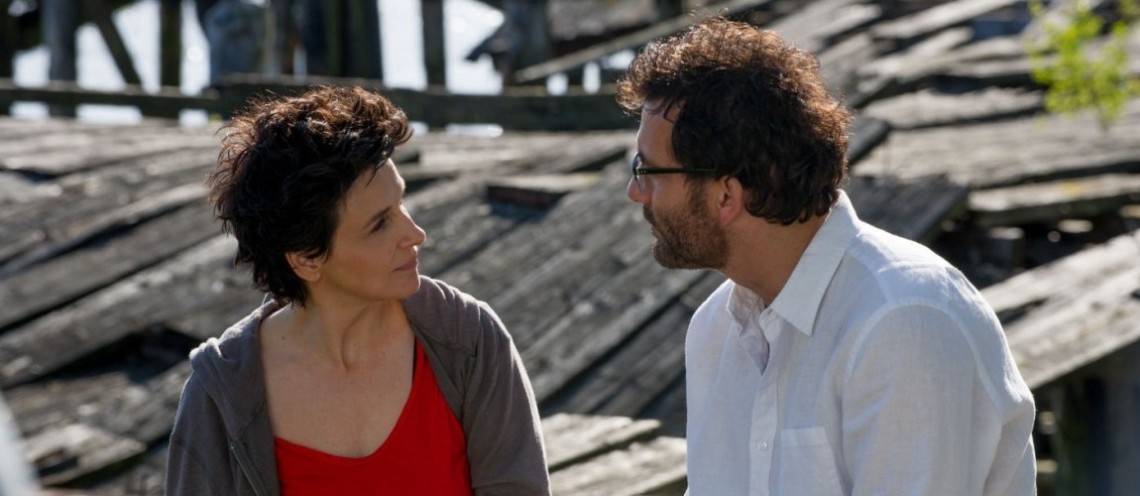If any given scene from Words and Pictures was taken out and presented devoid of context, it would play perfectly as a joke scene that a show like The Simpsons might make up as a parody of cliched romantic comedies. It’s not so much that the film has a stock plot (though it does) – it’s more how every single acting, dialogue, editorial, and directional beat plays as if the script were written using hack mad libs. It’s the kind of movie that makes you cringe watching the actors try to make sense of what they are doing. Poor Clive Owen and Juliette Binoche deserve better.
Owen represents the “words” part of the title, and Binoche the “pictures.” They play teachers at a fancy New England prep school, Owen of English, Binoche of art. Both characters are former greats in their respective fields laid low by personal problems, forced to teach to make ends meet. Owen’s Jack Marcus has his alcoholism, while Binoche’s Dina Delsanto has her osteoporosis. The two bicker as soon as they meet, but that’s a cover for their mutual love, of course. As a way of busying the story until the pair hook up, they engage in a competition to see who can “prove” their area of choice is more “important.” With their students as proxy soldiers, they must determine once and for all which is better: words… or pictures (you can practically hear the awful pitch to financial backers here).
The “debate” over whether art or literature is more valuable to society exists more in fiction than it does in reality. I’m not sure anyone other than impassioned and/or stoned students have ever taken it too seriously. Seeing alleged professionals dive whole hog into this conflict inspires more sympathetic embarrassment than engagement. It’d be one thing if Marcus and Delsanto used the debate as a way to make their kids think about how different mediums affect them, but no, they’re both really trying to win them to their sides. It’s the strangest method of contriving antagonism between romantic comedy protagonists that I’ve seen in a while.
One pleasant surprise I got out of the film was learning that Binoche is an impressive painter. She made all of her character’s work herself, and it’s quite striking. In general, Binoche is giving this stuff way more effort than it deserves. The only bits that evoke anything close to what the movie aims for involve Delsanto’s struggle with her worsening condition. The same can’t be said of Owen, though in fairness to him, he hasn’t been given much of value to work with. Marcus appears to have been written via the method of throwing a load of darts at a board marked with all the tropes of movie alcoholism, and then putting in whatever they hit… and then ones that weren’t hit too, for good measure.
Words and Pictures feels like it was lifted out of the ’90s era of romantic comedies; a time where the imperative seemed to be to structure a story around some belabored concept (or weird supernatural gimmick). Thus, it makes sense that it’s directed by Fred “Mr. Baseball and I.Q.” Schepisi*, who provides the film with the exact level of uncaring workmanship it deserves. This is the perfect date movie for 50-somethings, and not better for much else.
Grade: C-
*Of course, he is also Fred Schepisi of The Chant of Jimmie Blacksmith, among other respected works. Jeez, dude.





















One thought on “‘Words and Pictures’ (That We’ve Seen Many Times Before)”
What lofty disdain you have – it’s the Dan Schindel show, the man above it all.